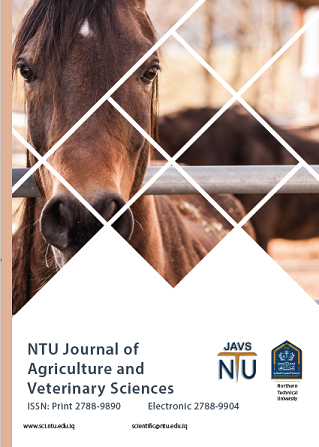Abstract
The study its included 200 cats of different ages, genders, types of breeding, source, vaccination programs, as well as the health status. They were examined traditionally and clinically and recorded clinical signs appearing on them, and then blood samples were collected from cephalic vein. It was later transferred as soon as possible to the Microbiology Laboratory to the purpose of investigating to specific the antibodies the feline herpes virus in the blood collected from cats, an indirect ELISA test was used. The results of the clinical examination in the animals that were examined during the study showed the presence of clinical signs of varying intensity and type, as represented by the presence of secretions from the eyes with conjunctivitis, nasal secretions, abortion in pregnant females, ulcers of different sizes in the tongue and gums, in addition to that some animals were apparently healthy. The results of the serological study showed the presence of a number of positive samples of feline herpes virus of 118 cats out of a total of 200. The highest positive percentage was in the ages less than six months. In cats that suffer from ulcers in the mouth and in cats that are indoors management, in addition to the presence of a high percentage of positive samples with feline herpesvirus in imported cats compared to for local ones. It was also found through the serological study using the indirect ELISA test and the presence of the highest number of positive samples in the vaccinated cats..
Keywords
Cats
ELISA
FHV-1
Mosul city
